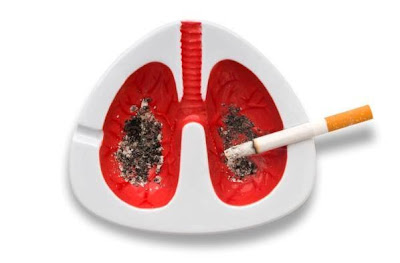 |
Smoking cigarettes, pipes, or cigars is the most common cause of lung cancer. The earlier in life a person starts smoking, the more often a person smokes, and the more years a person smokes, the greater the risk of lung cancer. If a person has stopped smoking, the risk becomes lower as the years pass.
Anything that increases your chance of getting a disease is called a risk factor. Having a risk factor does not mean that you will get cancer; not having risk factors doesn’t mean that you will not get cancer. Talk with your doctor if you think you may be at risk.
Risk factors for lung cancer include the following:
-Smoking cigarettes, pipes, or cigars, now or in the past.
-Being exposed to second-hand smoke.
-Being treated with radiation therapy to the breast or chest.
-Being exposed to asbestos, radon, chromium, nickel, arsenic, soot, or tar.
-Living where there is air pollution.
-When smoking is combined with other risk factors, the risk of lung cancer is increased.
Possible signs of non-small cell lung cancer include a cough that doesn't go away and shortness of breath.
Sometimes lung cancer does not cause any symptoms and is found during a chest x-ray done for another condition. Symptoms may be caused by lung cancer or by other conditions.
Check with your doctor if you have any of the following problems:
Chest discomfort or pain.
A cough that doesn’t go away or gets worse over time.
Trouble breathing.
Wheezing.
Blood in sputum (mucus coughed up from the lungs).
Hoarseness.
Loss of appetite.
Weight loss for no known reason.
Feeling very tired.
Trouble swallowing.
Swelling in the face and/or veins in the neck.
WARNING: Please dont completely rely on informations available online. Kindly visit your doctor if you have any health issues.





No comments:
Post a Comment